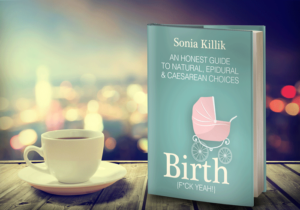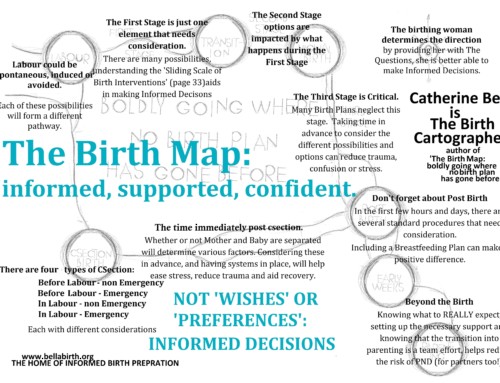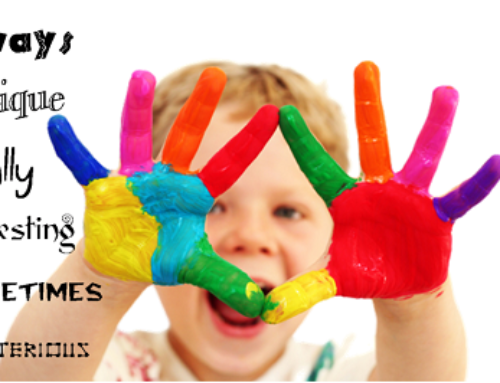By medicalizing birth, i.e. separating a woman from her own environment and surrounding her with strange people using strange machines to do strange things to her in an effort to assist her (and some of this may occasionally be necessary), the woman’s state of mind and body is so altered that her ways of carrying through this intimate act must also be altered and the state of the baby born must equally be altered. The result is that it’s no longer possible to know what births would have been like before these manipulations. Most health care providers no longer know what “non-medicalized” birth is. This is an overwhelmingly important issue.
World Health Organisation 1985
 Oxytocin is a powerful hormone which is released in huge quantities by your body when you go into labour. It’s called the love hormone because it induces intense feelings of love and bonding (it’s also produced during orgasm). Pretty logical, considering that you are about to birth a human being who you will love beyond anything else for your entire life.
Oxytocin is a powerful hormone which is released in huge quantities by your body when you go into labour. It’s called the love hormone because it induces intense feelings of love and bonding (it’s also produced during orgasm). Pretty logical, considering that you are about to birth a human being who you will love beyond anything else for your entire life.
It is interesting to note that mammals which produce oxytocin nurse their young and raise them for months or years, depending on their species, while animals that do not produce oxytocin leave their young almost immediately after birth.
It is a very powerful hormone which not only assists you in birthing, but also in bonding and loving your child and nursing him as he grows. Oxytocin doesn’t only influence and manage your labour, but your emotions and thoughts as well.
In a normal birth environment, oxytocin is released in varying amounts by the posterior pituitary according to the stages of labour and how well mother and baby are doing emotionally. It’s governed by an intelligence far greater than our own.
It’s the infinite wisdom of nature and life at work.
This hormone is so intelligent that it will stop producing itself, and slow or stop labour altogether, if the mother feels she is in danger. This function dates back to prehistoric times when the threat of being attacked while birthing was very great. Every labouring female from the dawn of time has tried to birth her young in a protected environment, free from predators and protected from the elements. If her safety is compromised then oxytocin slows down labour, giving her time to find safety again.
The intelligence of oxytocin also extends to communication – it is in constant feedback mode with your baby. As your cervix ripens and dilates, and your baby twists and moves down your birth canal, your levels of oxytocin either increase or decrease according to your wellbeing and your baby’s.
Oxytocin’s best friend is another hormone called prolactin, which is also a vital birth, breastfeeding and bonding hormone. Prolactin has two functions – influencing our bodies physiologically (stimulating breastmilk production) and psychologically (making you one bad-ass protective mother).
Without the two birth hormones working together and unimpeded, we unleash a shit storm of trouble during birth, breastfeeding and parenting.
Oxytocin is THE MOST IMPORTANT physiological factor of birth, and the one thing that is damaged the most by a medicalised birth.
All interventions affect oxytocin, which means that ANY intervention hinders the process.
Any time our body produces flight-or-fight hormones, the production of oxytocin will slow or stop altogether, which translates to a prolonged or stop/start labour. Stresses that may cause the depletion of oxytocin are:
⁃ the “nil per mouth” policy for labouring mothers in most hospitals, leaving you hungry and thirsty;
⁃ the rotation of nursing staff and general lack of privacy in most hospitals;
⁃ the impatience of most doctors, who want to intervene in some way to speed it up;
⁃ the arrogance of doctors who don’t trust your judgement or respect your wishes, but want to take control of the process themselves;
⁃ the cold, bright and impersonal hospital environment – the exact opposite of the warm, dimly lit room which you want and need;
⁃ interventions of any kind.
Your mental state is vital to your baby’s wellbeing and your own. In a hospital, mental state is managed with synthetic drugs and anaesthetics, even though your body comes pre-equipped with the best medications of all.
If your pregnancy is healthy, allow nature to gently guide the unfolding of your birth, as it will with the awakening of your motherhood.
___________________________________________________________
BIRTH: f*ck yeah! is available from Amazon and other retail stores (you can click on the image below to check it out on Amazon).
[amazon_image id=”B018EB87OM” link=”true” target=”_blank” size=”medium” ]Birth f*ck yeah!: An Honest Guide to Natural, Epidural & Caesarean Choices[/amazon_image]Sonia Killik is a metaphysician and author. She has been a sought after contributor in the areas of global sustainability & personal empowerment. Her first book Birth: F**k yeah! aims to address the global issues surrounding modern childbirth.
Visit her at www.soniakillik.com / info@soniakillik.com / twitter / facebook






Very important information! I was told many years ago that epidurals interfere with oxytocin production? Does she make any mention of this in her book? Is there any research on this?
I think the most important part of this post is in the last sentence: “If your pregnancy is healthy…”
Had it not been for a medicalised birth, with the intervention of doctors & nurses taking control of the process themselves, both my son & I would have died. I am eternally grateful to modern science & medicine, & the angels that were on duty that day.
For the record, I do believe I experienced the rush, the natural high, of oxytocin on the operating table – even though I never went into labour, & even under the most terrifying circumstances of undergoing an emergency C-section 2 months before my due date, all whilst hopped up on a cocktail of synthetic drugs & anaesthetics. I think this can be evidenced by the sentence where I describe the feeling of giving birth as a “state of unexpected euphoria, like a really intense Ecstasy high” (see my full story here: http://jozibelle.blogspot.co.za/2013/07/enter-goran.html).
I also want to say that I bonded immediately with my baby, even though I had never planned on being a mother, even though the first time I was allowed to hold him was when he was 10 days old (he spent the first month of life in NICU), & even though I couldn’t breastfeed (I could only provide the nurses with whatever colostrum & tiny amount of breastmilk I was able to express, until it eventually dried up – despite taking Eglonyl AND drinking jungle juice), as my tiny mite had to be fed via a tube in his nose.
I just think we need to be very careful about generalisations, & give credit to medicalised birth where credit is due. I haven’t read Sonia’ book yet, so I don’t know if this is covered or not, but I just wanted to relay my personal experiences on the subject, to help provide a more balanced view.
[…] Guest post / Excerpt from Birth […]